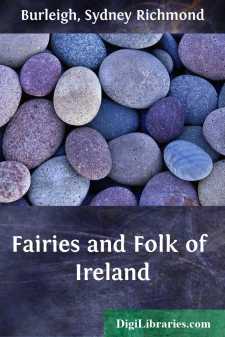Categories
- Antiques & Collectibles 13
- Architecture 36
- Art 48
- Bibles 22
- Biography & Autobiography 815
- Body, Mind & Spirit 144
- Business & Economics 28
- Children's Books 18
- Children's Fiction 14
- Computers 4
- Cooking 94
- Crafts & Hobbies 4
- Drama 346
- Education 58
- Family & Relationships 59
- Fiction 11833
- Games 19
- Gardening 17
- Health & Fitness 34
- History 1378
- House & Home 1
- Humor 147
- Juvenile Fiction 1873
- Juvenile Nonfiction 202
- Language Arts & Disciplines 89
- Law 16
- Literary Collections 686
- Literary Criticism 179
- Mathematics 13
- Medical 41
- Music 40
- Nature 179
- Non-Classifiable 1768
- Performing Arts 7
- Periodicals 1453
- Philosophy 65
- Photography 2
- Poetry 896
- Political Science 203
- Psychology 44
- Reference 154
- Religion 515
- Science 126
- Self-Help 85
- Social Science 82
- Sports & Recreation 34
- Study Aids 3
- Technology & Engineering 59
- Transportation 23
- Travel 463
- True Crime 29
Our website is made possible by displaying online advertisements to our visitors.
Please consider supporting us by disabling your ad blocker.
Fairies and Folk of Ireland
Categories:
Description:
Excerpt
I
O'DONOGHUE
It was in a poor little cabin somewhere in Ireland. It does not matter where. The walls were of rough stone, the roof was of thatch, and the floor was the hard earth. There was very little furniture. Poor as it was, the whole place was clean. It is right to tell this, because, unhappily, a good many cabins in Ireland are not clean. What furniture there was had been rubbed smooth and spotless, and the few dishes that there were fairly shone. The floor was as carefully swept as if the Queen were expected.
The three persons who lived in the cabin had eaten their supper of potatoes and milk and were sitting before the turf fire. It had been a poor supper, yet a little of it that was left—a few potatoes, a little milk, and a dish of fresh water—had been placed on a bench outside the door. There was no light except that of the fire. There was no need of any other, and there was no money to spend on candles that were not needed.
The three who sat before the fire, and needed no other light, were a young man, a young woman, and an elderly woman. She did not like to be called old, for she said, and quite truly, that sixty was not old for anybody who felt as young as she did. This woman was Mrs. O'Brien. The young man was her son, John, and the young-woman was his wife, Kitty.
"Kitty," said John, "it's not well you're lookin' to-night. Are ye feelin' anyways worse than common?"
"It's only a bit tired I am," said Kitty, "wid the work I was afther doin' all day. I'll be as well as ever in the morning."
"It's a shame, that it is," said John, "that ye have to be workin' that way, day afther day, and you not sthrong at all. It's a shame that I can't do enough for the three of us, and the more, maybe, that there'll be, but you must be at it, too, all the time."
"What nonsinse ye're talkin', John," Kitty answered. "What would I be doin', settin' up here like a lady, doin' nothin', and you and mother workin' away like you was my servants? Did you think it was a duchess or the daughter of the Lord Lieutenant ye was marryin', that ye're talkin' that way?"
"And it'll be worse a long time before it's betther," John went on. "Wid the three of us workin' all the time, we just barely get along. And it's the end of the summer now. What we'll do at all when the winter comes, I dunno."
The older woman listened to the others and said nothing. Perhaps she had heard such talk as this so many times that she did not care to join in it again, or perhaps she was waiting to be asked to speak. For it was to her that these younger people always turned when they were in trouble. It was her advice and her opinion that they always asked when they felt that they needed a better opinion than their own. The three sat silent now for a time, and then John broke out, as if the talk had been going on in his mind all the while: "What's the good of us tryin' to live at all?" he said. "Is livin' any use to us? We do nothin' but work all day, and eat a little to give us the strength to work the next day, and then we sleep all night, if we can sleep. And it's that and nothing else all the year through. Are we any better when the year ends than we were when it began? If we've paid the rent, we've done well. We never do more."
"John," the old woman answered, "it's not for us to say why we're here or what for we're living. It's God that put us here, and He'll keep us here till it's our time to go. He has made it the way of all His creatures to provide for themselves and for their own, and to keep themselves alive while they can. When He's ready for us to die, we die....


